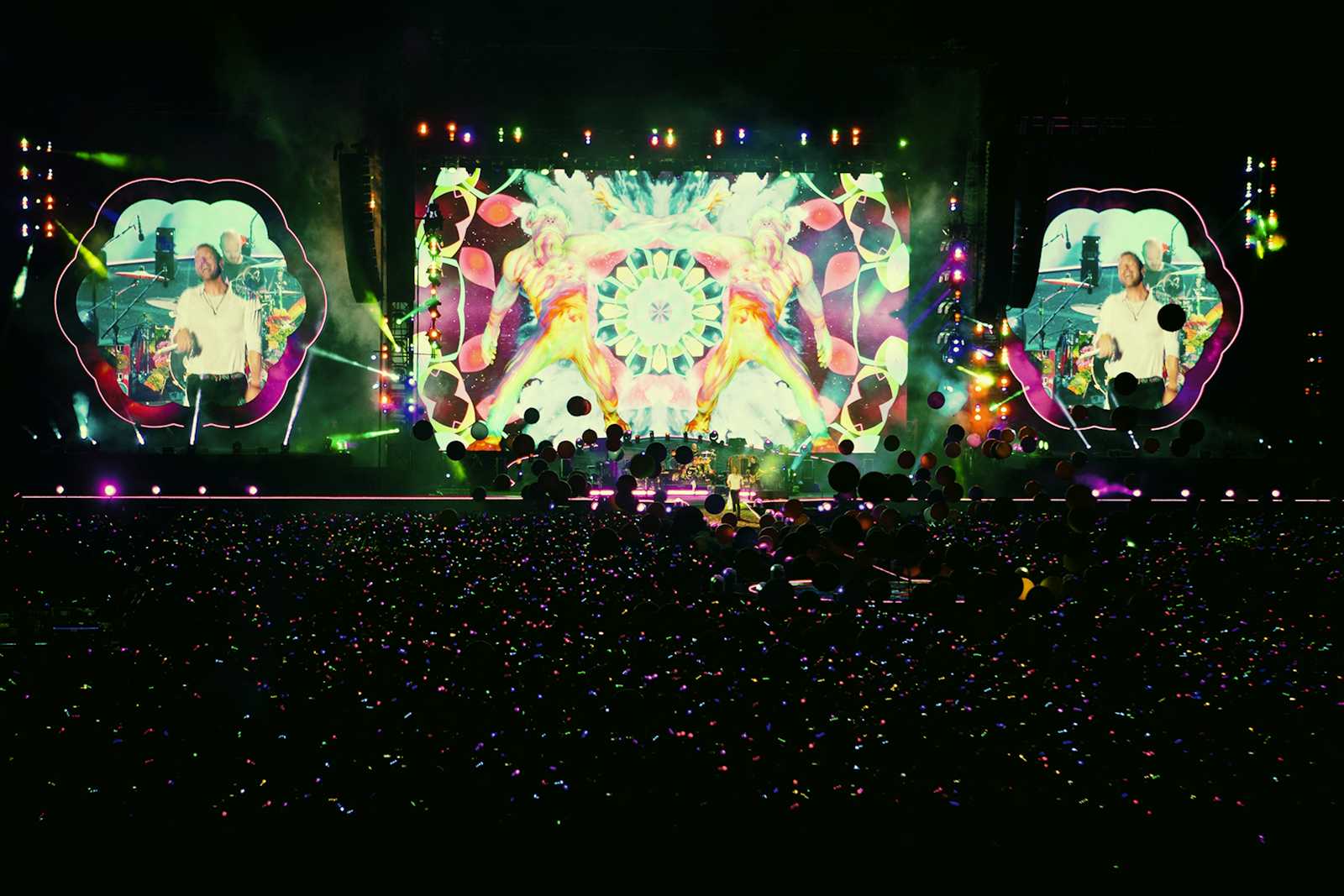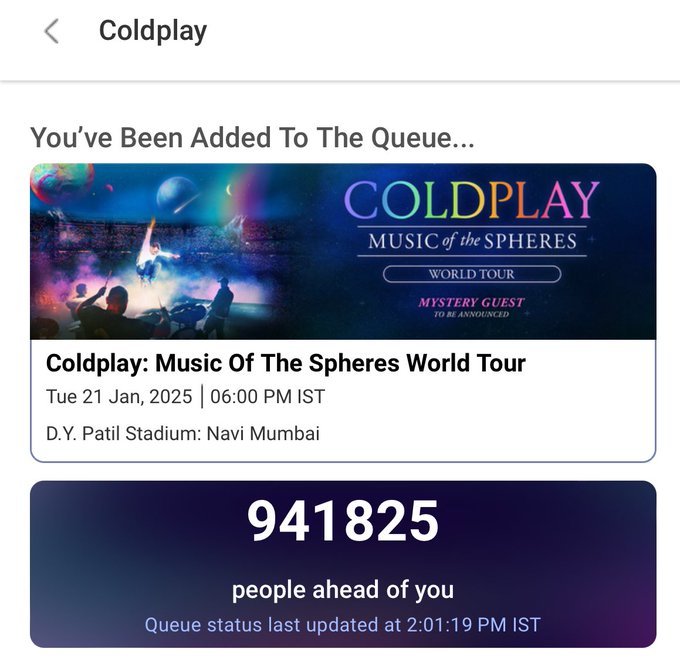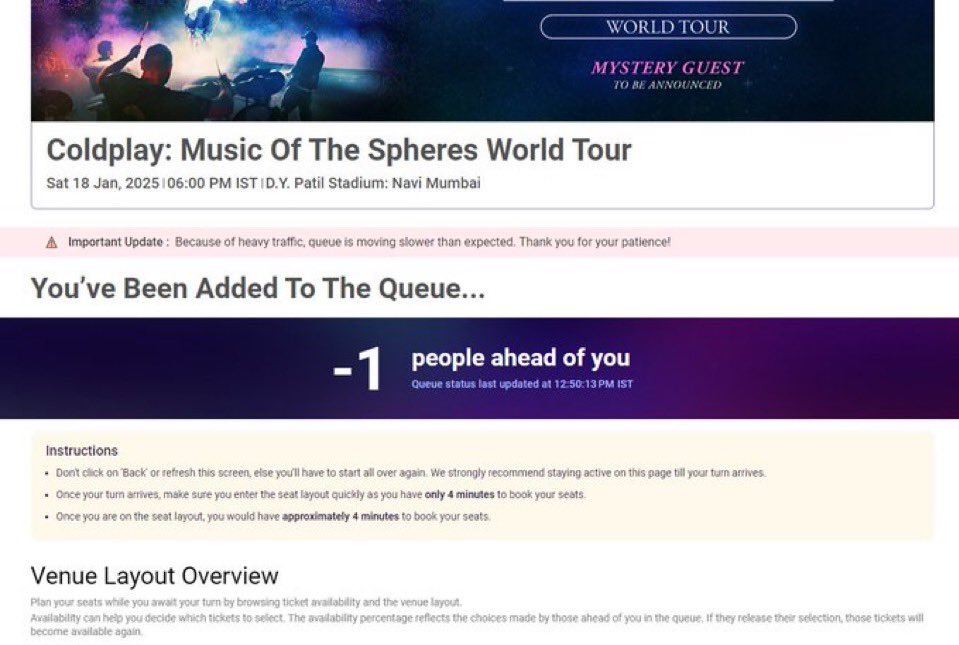Why BookMyShow Crashed During Coldplay Ticket Rush: A Technical Insight
 Vishal Sharma
Vishal Sharma
In recent events, BookMyShow faced significant technical challenges during the highly anticipated ticket sales for Coldplay's concert in Mumbai. The platform experienced a complete outage, leaving countless fans frustrated and unable to secure tickets. This incident sheds light on critical aspects of system design, particularly under extreme load conditions. Understanding what went wrong can offer insights into building more resilient systems in the future
What Choked the Systems?
Surge in User Demand: The primary culprit behind the system failure was an overwhelming influx of users attempting to access the site simultaneously. With over 1.1 million users queued for tickets, the existing infrastructure struggled to manage this unprecedented load.
Inefficient Load Balancing: Effective load balancing is crucial for distributing incoming traffic across multiple servers. BookMyShow's inability to efficiently manage this surge likely contributed to server overloads, causing significant delays and crashes.
Database Bottlenecks: High concurrency demands can lead to database contention issues, especially when multiple users attempt to book the same seats simultaneously. This can result in transaction failures and slow response times, further exacerbating user frustration.
Lack of Caching Mechanisms: Caching frequently accessed data can significantly reduce database load and improve response times. If BookMyShow did not implement robust caching strategies, such as using Redis or Memcached, it would have struggled under peak loads.
System Design Considerations from an Engineer's Perspective
To avoid similar failures in the future, engineers should consider several key design principles:
Microservices Architecture: Implementing a microservices architecture allows for better scalability and isolation of services. Each component (e.g., user management, ticket booking, payment processing) can be scaled independently based on demand.
Load Testing and Capacity Planning: Regular load testing can help identify potential bottlenecks before they become critical issues. Engineers should simulate high-traffic scenarios to ensure that the system can handle peak loads without crashing.
Asynchronous Processing: Utilizing asynchronous processing for non-blocking operations (like seat reservations) can enhance user experience by allowing the system to handle multiple requests simultaneously without delays.
Graceful Degradation: In cases of high demand, systems should be designed to degrade gracefully rather than failing completely. For example, users could be placed in a waiting room instead of encountering a crash page.
Robust Caching Strategies: Implementing caching mechanisms for frequently accessed data (like movie listings and available seats) can alleviate pressure on databases and improve response times during high traffic periods.
Issues People faced during booking.


Reasons for the Issues
Concurrency Problems: The ticket booking system likely experienced high concurrency, where multiple users attempted to book the same seats simultaneously. This can lead to race conditions, resulting in incorrect data being displayed, such as showing more users in the queue than available seats.
Queue Management Failures: An effective queue management system is crucial during high-demand events. If the queue logic is not robust, it may not accurately reflect the number of users waiting for tickets, leading to discrepancies like showing a number greater than stadium capacity. This can occur if the system fails to update user statuses in real-time as bookings are processed.
Reservation Pool Issues: The presence of a reservation pool, where seats are temporarily held for users who have initiated a booking but have not yet completed payment, can complicate availability displays. If many users hold seats simultaneously, it can create confusion about actual seat availability, leading to misleading messages about capacity and availability.
Database Transaction Conflicts: In high-load scenarios, database transactions may conflict if multiple requests try to access or modify the same data concurrently. This can result in failures or erroneous outputs (like showing "-1"), indicating that the system could not properly handle the transaction requests due to data integrity issues.
System Performance Bottlenecks: If the underlying infrastructure is not designed to scale effectively under heavy load, it may lead to performance bottlenecks. This can cause delays in processing user requests and updating seat availability in real-time, contributing to user confusion and frustration
Conclusion
In conclusion, the challenges faced during the Coldplay ticket booking event highlight the importance of robust system design and effective load management in high-demand scenarios. By implementing scalable architectures, efficient queue management, and real-time monitoring, ticketing platforms can enhance user experience and minimize frustrations. Learning from these incidents is crucial for continuous improvement, ensuring that future events run smoothly and efficiently. As technology evolves, so too must our approaches to building resilient systems that can handle unexpected surges in demand. Here’s to creating better solutions for tomorrow's challenges! Happy Coding! 👨💻
Subscribe to my newsletter
Read articles from Vishal Sharma directly inside your inbox. Subscribe to the newsletter, and don't miss out.
Written by

Vishal Sharma
Vishal Sharma
I am a developer from Surat who loves to write about DSA,Web Development, and Computer Science stuff.